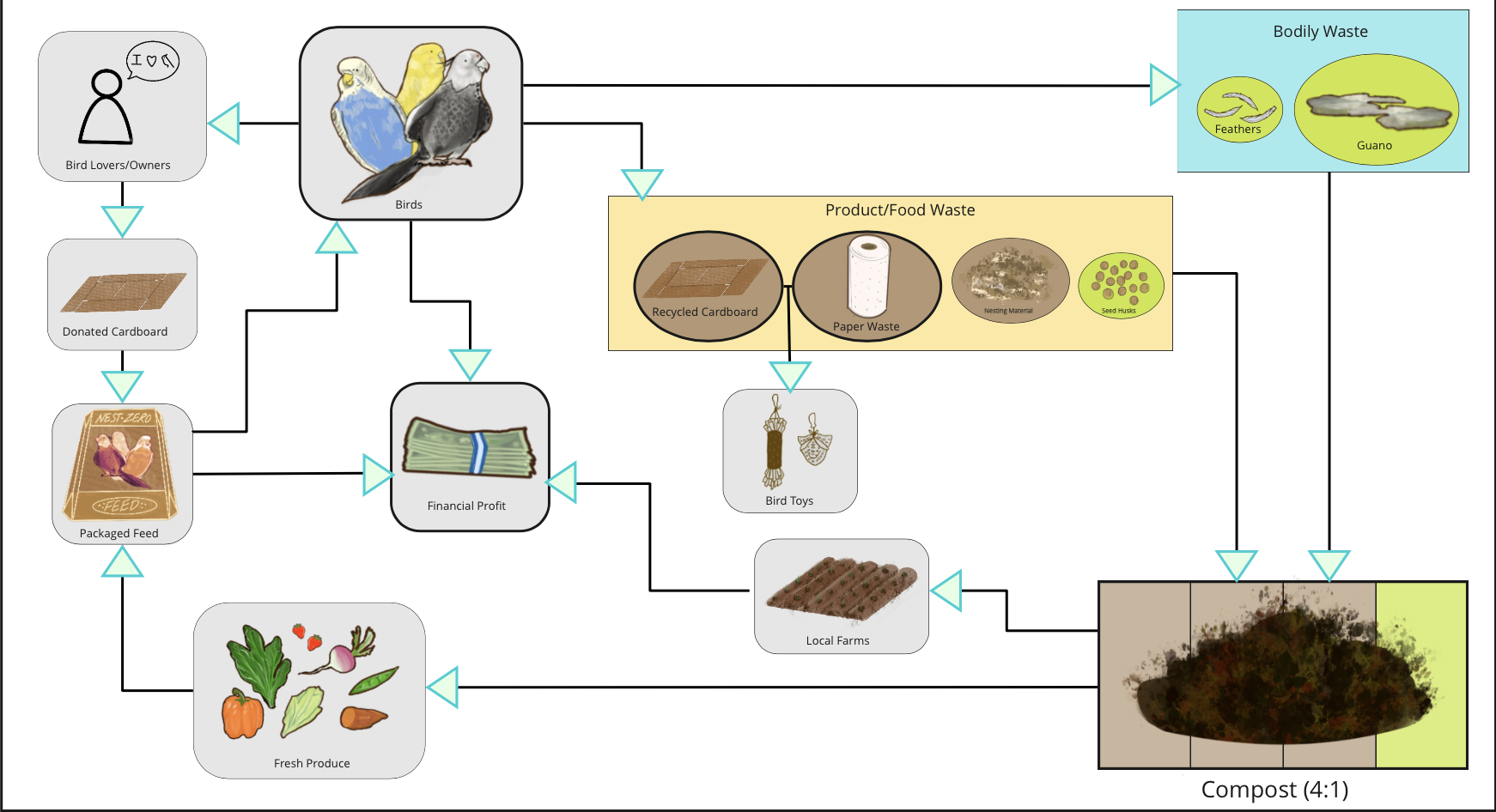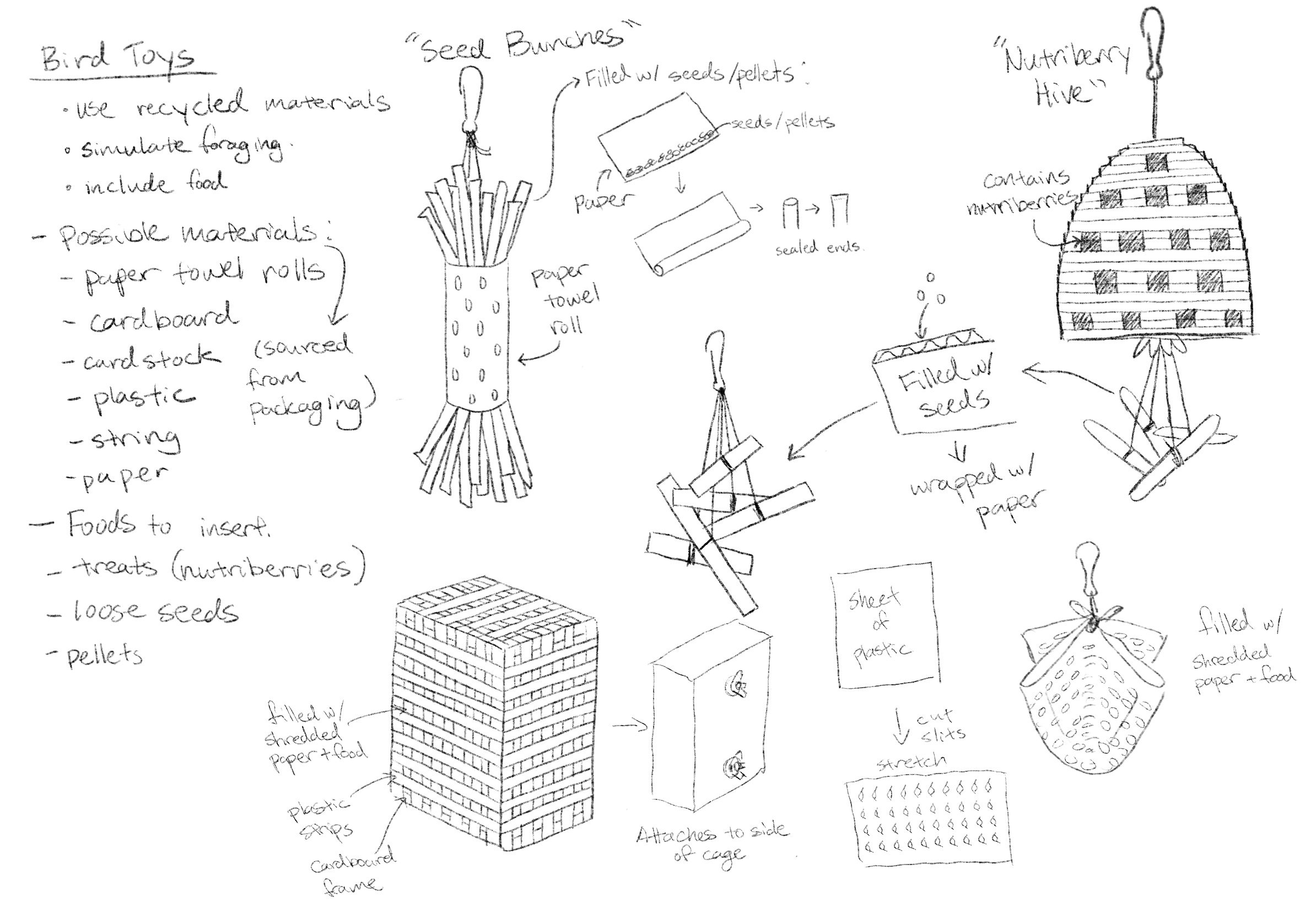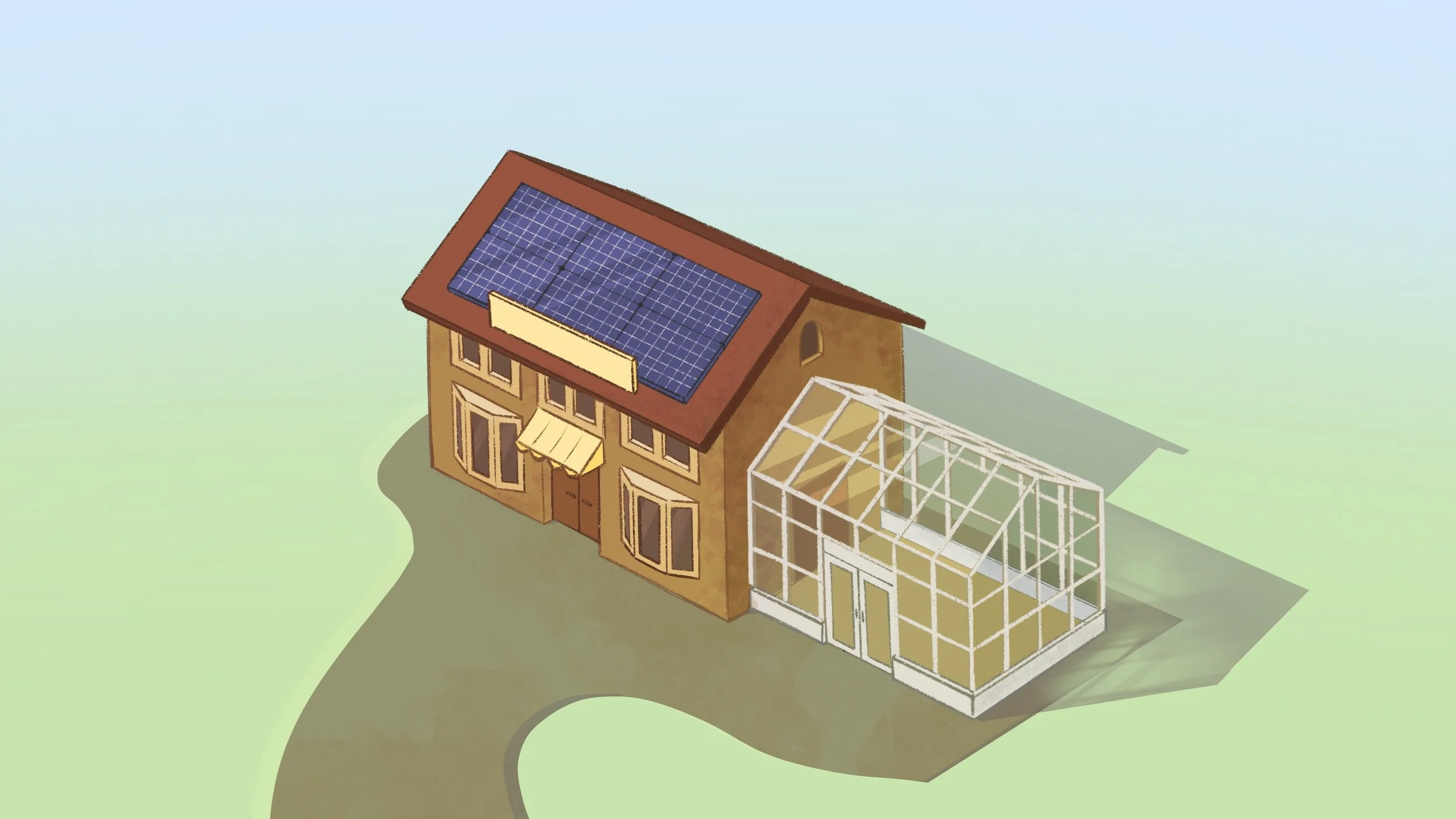#Biosystems
#Toy Design
#Illustration
#Sustainability
#Systems Design
#Biosystems #Toy Design #Illustration #Sustainability #Systems Design
A self-sufficient bird specialty store?
Yes. My partner Lucy Blake and I came up with a bird store concept that involves using the organic and inorganic waste of its animals to produce compost for its greenhouse, creating food and supplies that go back into operating the store.
Abstract
Jasmine Xu & Lucy Blake
ID-20ST-02: Biodesign
Peter Yeadon, Jennifer Bissonnette
Nest Zero is a medium-scale bird specialty store and greenhouse concept with the goal of minimizing waste as well as relying on self-produced and local resources. The two-story building would be a solar-powered shop that would house live birds, bird food, and toys, and also offer bird boarding services. The birds for sale in the shop would be sourced from local reputable breeders. Attached to the building would be a 16’x30’ gable greenhouse that would also be powered using solar energy. With the knowledge that guano is a tried and true form of effective fertilizer, Nest Zero would capitalize on its beneficial qualities. The system in place would utilize domestic bird feces, cage waste, and packaging material to make nutrient-rich compost, which would facilitate bird food growth in the greenhouse. Some examples of products that would be grown in the greenhouse include turnips, strawberries, and peas. With the fresh fruits and vegetables from the greenhouse, combined with the seeds from local farmers, Nest Zero would have their own brand and formula of packaged bird food to sell in the store, creating more revenue. To sustain a healthy amount of compost, the system would welcome brown material contributions from The local community. Customers would be given a "punch card" for the number of pounds of cardboard packaging they bring back to donate, if they reach 10lbs, they would be given a 40% off coupon for bird toys or bird food. A three-part rotating compost drum would make it possible to process large amounts of green and brown compost material effectively. Nest zero would produce around 750lbs of compost annually, composed of both bodily bird waste and bird product/food waste. Excess compost material would be sold to local farms to benefit their crop producing, contributing to the revenue of the shop. As far as staffing, Nest Zero would offer jobs, both part and full time, to the underemployed population in the surrounding area, as well as any member of the local community who is passionate about animals or the environment. Along with the hired staff, the store would engage with volunteers and bird enthusiasts in workshops. The weekly workshops would be for bird lovers and schools in the surrounding community. At these workshops, visitors would learn how to make their own bird toys out of recycled materials, how a three-part composting system works, as well as have the opportunity to learn about and interact with feathered friends.



